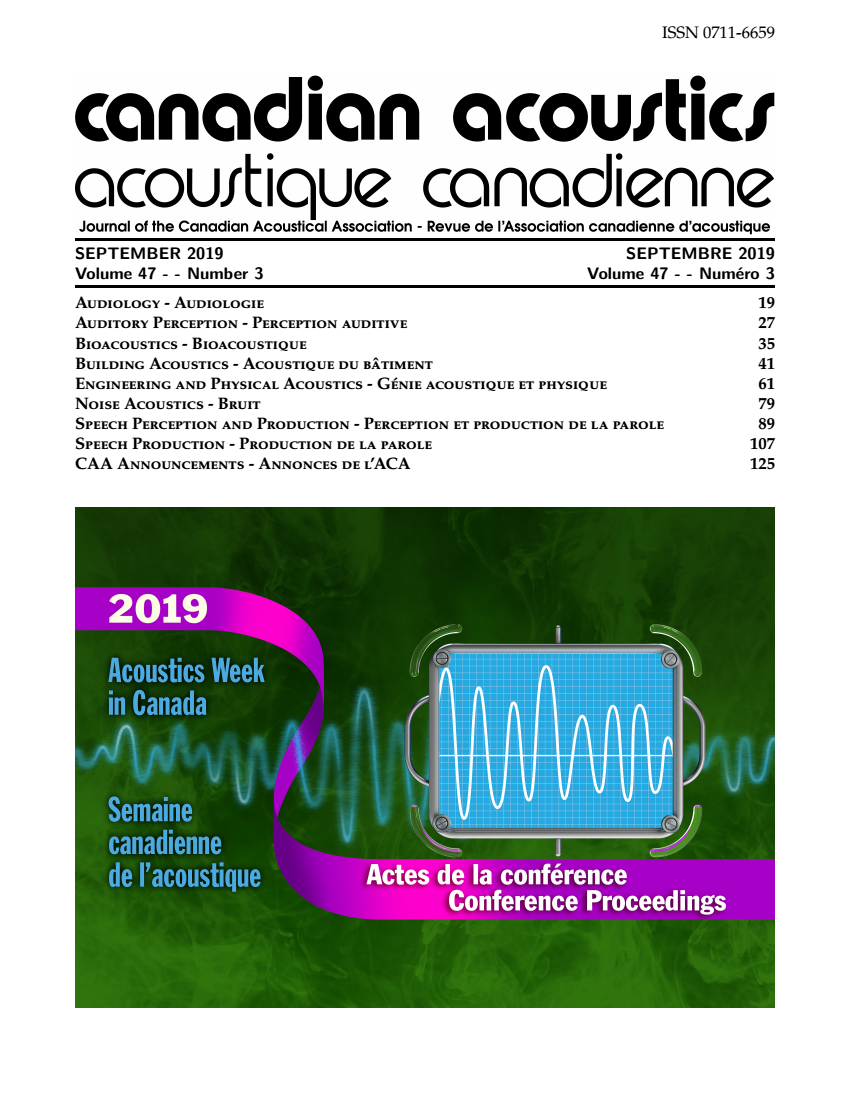Recent Experience With Acoustical Privacy Considerations in Academic Settings
Abstract
Over the last number of years, the provision of increased levels of acoustical privacy and confidentiality has become an ever more important consideration in the design and functionality of office spaces and interview rooms. Occupants have always desired freedom from distraction and an enhanced feeling of privacy in their workplaces and offices. More recently, with the advent of privacy of information legislation, confidential levels of privacy are commonly required for spoken conversations. In academic settings, such spaces involve exam rooms for special needs students, mental health offices in student services facilities, cooperative education and other interview rooms and registration offices where sensitive information may be discussed. This article discusses several investigations related to reportedly poor levels of acoustical privacy in academic settings with regard to applicable criteria, suitable acoustical measurements and analysis and contributing factors.
Additional Files
Published
How to Cite
Issue
Section
License
Author Licensing Addendum
This Licensing Addendum ("Addendum") is entered into between the undersigned Author(s) and Canadian Acoustics journal published by the Canadian Acoustical Association (hereinafter referred to as the "Publisher"). The Author(s) and the Publisher agree as follows:
-
Retained Rights: The Author(s) retain(s) the following rights:
- The right to reproduce, distribute, and publicly display the Work on the Author's personal website or the website of the Author's institution.
- The right to use the Work in the Author's teaching activities and presentations.
- The right to include the Work in a compilation for the Author's personal use, not for sale.
-
Grant of License: The Author(s) grant(s) to the Publisher a worldwide exclusive license to publish, reproduce, distribute, and display the Work in Canadian Acoustics and any other formats and media deemed appropriate by the Publisher.
-
Attribution: The Publisher agrees to include proper attribution to the Author(s) in all publications and reproductions of the Work.
-
No Conflict: This Addendum is intended to be in harmony with, and not in conflict with, the terms and conditions of the original agreement entered into between the Author(s) and the Publisher.
-
Copyright Clause: Copyright on articles is held by the Author(s). The corresponding Author has the right to grant on behalf of all Authors and does grant on behalf of all Authors, a worldwide exclusive license to the Publisher and its licensees in perpetuity, in all forms, formats, and media (whether known now or created in the future), including but not limited to the rights to publish, reproduce, distribute, display, store, translate, create adaptations, reprints, include within collections, and create summaries, extracts, and/or abstracts of the Contribution.


